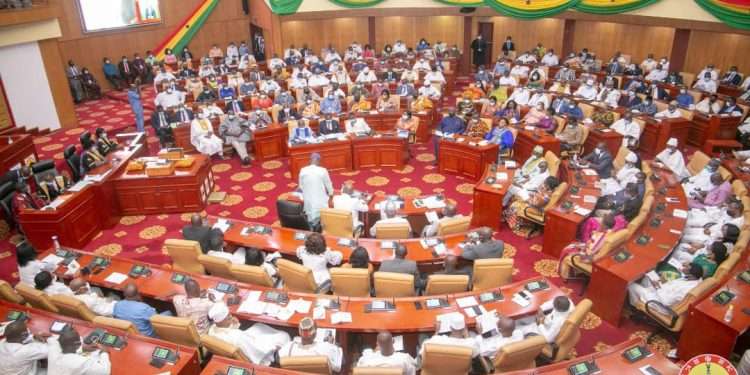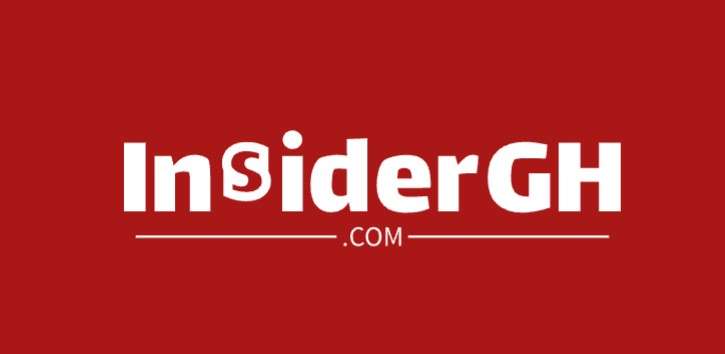The recently announced US$150 million “joint venture” between state-owned AT (formerly AirtelTigo) and Hannam Investments, has been recommended for rigorous parliamentary scrutiny.
Bright Simons, Vice President of Research at IMANI Centre for Policy and Education, raised concerns while delving into the deal, which promises to transform the Ghanaian telecom operator.
The transaction led by Ghana’s Minister of Communications and Digitalization,Ursula Owusu-Ekuful, to a British national, Ian Charles Hannam, is facing heightened scrutiny amid growing concerns over transparency.
Mr Simons also put his spotlights on Ian Charles Hannam’s background revealing his British Special Forces – SAS links, as well as the potential lack of transparency and fairness in the transaction.
The partnership involves Hannam, pumping investments in the region of US$150 million into AT for an operational turnaround, with plans to leverage AT’s mobile money license for fintech ventures.
Critics argue that the reported sale of AT to Hannam significantly undervalues the Ghanaian telecom company when compared to recent transactions in Ghana’s telecommunications sector, as well as similar transactions in neighbouring Togo.
But Ghana’s Ministry of Communications and Digitalisation, headed by Ursula Owusu, attempted to ease concerns about the AirtelTigo transaction with Hannam by rather focusing on the impressive career of Ian Hannam, the Founder of Hannam Investments, during his time at JP Morgan.
However, Bright Simons, dismissed the hype, stating in an article released yesterday, February 6, 2024, that “Ian Hannam’s story needs no garnishing.”
Bright Simons, pointed out Hannam’s background as a former UK Special Forces reservist and his controversial past, including an insider trading scandal in 2012 that led to a fine by UK financial regulators.
Now 63, Hannam founded Elgin Partners in 2012 after leaving JP Morgan, setting up Hannam & Partners, a niche investment bank. Known for his daring business approach, Hannam has ventured into complex deals, including a copper fabrication plant with a former JP Morgan client, Kazakhmys.
Hannam’s involvement in highly risky ventures, leveraging political, military, and business-strategic connections, was mentioned in the article.
The controversy intensifies as the reported sale of AT to Hannam allegedly undervalues the telecom assets, with suspicions arising about the fairness and transparency of the deal.
Comparisons with past telecom transactions in Ghana, reveal a stark difference in pricing.
The Telecel acquisition of Vodafone Ghana’s assets in 2022, valued subscribers at approximately $67 each, while the reported Hannam deal implies a much lower valuation.
For Bright Simons, Parliamentary scrutiny may become a key avenue to address concerns surrounding the deal, including suspicion that the transaction has been undervalued.
Due to Hannam Investments being domiciled overseas, the transaction, even if masked through a locally incorporated Special Purpose Vehicle (SPV), would be subject to Parliamentary ratification under Ghanaian law for “major international business transactions.”
According to Simons, if the Ghanaian Parliament, chooses to exercise strict oversight, Ian Hannam, will face challenges navigating committee enquiries seeking to unveil the details of this high-stakes telecom venture.
The unfolding events promise to shed light on the true nature of the AT-Hannam joint venture and its potential implications for Ghana’s telecommunications landscape.
Ahead of that anticipated scrutiny, Bright Simons noted that “as has become customary in Accra nowadays, even the pretense of a competitive bidding process was dispensed with, so it is anyone’s guess why Hannam’s offer found favour, whilst other expressions of interest, such as Airtel’s, didn’t. His reported planned investment of $150 million is destined for the cleaned-up AT, stripped of the aforementioned historical baggage of AirtelTigo liabilities. The question that governance watchdogs and analysts have is: who will be left holding the can? Is it the Ghanaian taxpayer?
“Second, and more egregiously, the valuation implied in the joint venture (JV) transaction would suggest that each AirtelTigo/AT subscriber is being valued at a paltry ~$26. That would be a scandalous number of historic proportions.
He pointed out that “In 2006, when MTN entered Ghana through the regional Investcom/Areeba transaction and bought Scancom, the implied price-per-subscriber was a whopping $745. Notably, MTN was also required to pay $67.5 million to upgrade its licenses, which is not factored into the preceding valuation.
“In 2008, Celtel will value its entry into Ghana at $160 million by way of a 75% acquisition of state-owned Westel. (By the way, Ghana’s 25% stake held through the national oil company, GNPC, would be whittled down to zero by March 2017 due to failures to respond to capital calls.) The implied subscriber unit value would have been ~$53,000, but Westel was such a puny operator that the deal was understood, primarily, in terms of an operational license acquisition. (Note: Celtel was eventually acquired by Zain, which in turn was bought by Airtel.)
But “A more comparable deal would be the Vodafone entry into Ghana in 2009, during which the British giant acquired state-owned fixed wireless and mobile assets, customers, licenses and accompanying infrastructure. The implied subscriber value was ~$710 a pop.
“In 2010, Bharti Airtel, through its African vehicle, acquired Zain’s subscribers in Ghana at an implied unit valuation of ~$267.
To him, “should the Ghanaian Parliament choose to exercise stringent oversight, as contemplated by the constitution, Hannam will need all his SAS tact to manoeuvre through the minefield of committee enquiries aiming to get to the bottom of this sweetheart deal. And, perhaps, thrice the dose of charm he has used so far in ministerial chambers.
“For example, he pursued Afghanistan’s vast copper and other mineral deposits for more than a decade, evolving his geopolitical technique as the country’s checkered fate unfolded. During the Trump era, he finally hit the jackpot. The US president was desperate to commercialise Afghanistan’s untapped, trillion-dollar, minerals bonanza, partly to offset some of the large amounts of money America had expended during its military occupation. Leveraging links to General David Petraeus and expensive strategy consulting from Cherie Blair’s own boutique advisory firm, Hannam eventually succeeded between 2018 and 2020 in securing Afghan government mining permits. All was set for a great extractive feast. Then he run out of money.
“So, what is a storied City (of London) grandee, former British commando, distressed asset turnaround specialist, and shrewd warzone treasure hunter doing with a struggling Ghanaian telecom company? It isn’t too difficult to guess: he is looking to make a killing.
“Even Millicom’s fire sale of its telecom assets in Africa to focus on Latin America never saw the kind of rock-bottom pricing witnessed in the reported sale of AT to Hannam. Furthermore, Millicom’s sales were for pure cash consideration, whereas in the case of AT the government of Ghana (and by extension, Ghanaian taxpayers) is merely getting shares in an entity through which Hannam will control the investment of his $150 million cash injection for operational turnaround.
“Having invested in Revolut and, more recently, in Turkey’s Colendi, he has negotiated hard to be at a vantage point where he can leverage AT’s mobile money license for the ultimate fintech heist. Firms allied to the Ministry in the Kelni GVG and Common Platform endeavours who sought out Hannam in the first place are arrayed around the deal, eyeing juicy product alliances. Furthermore, accrued liabilities are being transferred out to be borne by the public.
theheraldghana.com










































